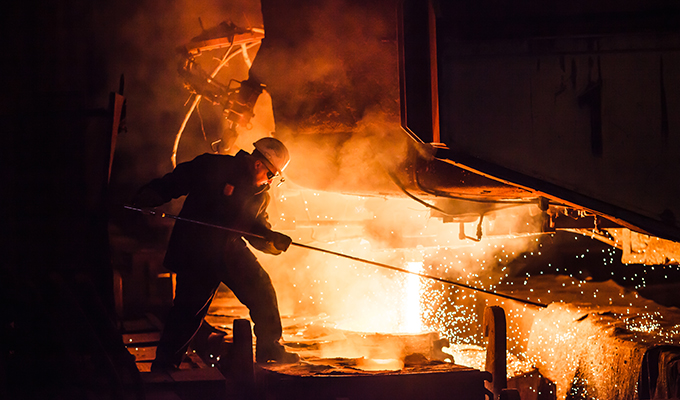The coming two years offer a narrow but clear window of opportunity, during which action must be taken if there is to be a revitalisation of the UK steel industry through breakthrough technology, the Energy Transitions Commission (ETC) says in a report seen by Kallanish.
This is because certain UK blast furnaces will potentially require a relining investment decision as early as 2025.
To avoid “carbon lock-in” – reinvestment into existing integrated mills and preserving carbon-intensive steelmaking – or “import lock-in” – foregoing investment and turning to imports to meet demand – the UK must create conditions for investment into a route to breakthrough steel.
These conditions include effective carbon pricing on both domestic production and steel imports, lower costs associated with sourcing and processing scrap steel, a market for differentiated, higher-priced low-carbon steel, and government guarantees to de-risk new technology. Direct government funding support for breakthrough ironmaking technology would go one step further and extend the investment case to cover both iron- and steelmaking processes, ETC says.
Effective carbon pricing will be critical. The UK government is currently considering funding to support the country’s existing integrated steelmaking sites to decarbonise. Transitioning to breakthrough technology would be a good use of this funding, but not if the resulting sites remain uncompetitive with steel imports that face lower or zero carbon costs, ETC points out.
Large scrap volumes are already available in the UK, but government regulatory action is needed to make its use more affordable. Restricting scrap exports is problematic, but measures to reduce electricity costs for steelmakers would make scrap intake more economical. Lowering or waiving network charges for industrial electricity consumers is an option, like the arrangements already in place in several European countries.
The right demand signals could be achieved through an alliance of UK steel buyers, similar to the First Movers Coalition or SteelZero efforts globally, underpinned by firm volume-based commitments. “Alongside private sector demand, the power of green public procurement should not be underestimated,” ETC observes. The government should also make firm commitments to ensure a portion of its steel procurement is met with near-zero-emissions steel.
Changes to UK content rules, such as requirements that bids for public tenders include greater proportions of domestically produced steel, could add further support.
“Should the pathway of breakthrough steel be chosen, an immediate priority would be the formation of a consortium of private sector stakeholders of the steel value chain (spanning energy suppliers, iron ore miners, steelmaking equipment manufacturers, steelmakers, buyers, and finance). Coalescing around a specific breakthrough project proposal, this consortium would be well placed to set out a robust case to government and swiftly act upon policy decisions,” ETC concludes.
Adam Smith Poland






